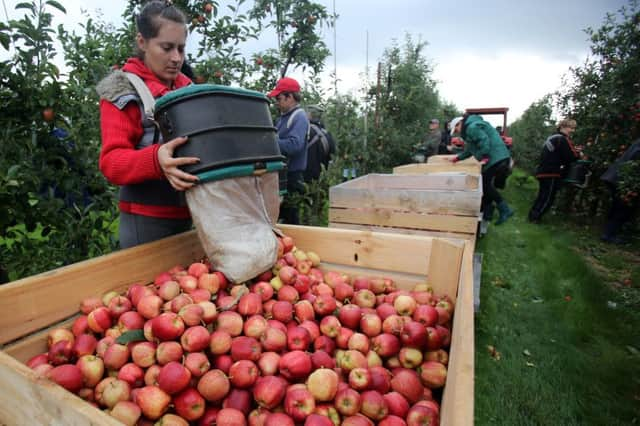David Thomson: Scots food and drink has a lot on its plate


Scotland’s food and drink industry is a great success story both at home and abroad. Food and drink manufacturing is the largest manufacturing industry in both Scotland and the rest of the UK. In Scotland the 875 businesses that make up the sector provide 34,000 jobs – 19 per cent of all manufacturing jobs and contribute £1.7 billion in gross value added to the economy.
In the aftermath of the decision to leave the EU, the key issue has been uncertainty. Markets have reacted, exchange rates have fluctuated. With a clear majority of the Scottish people wishing to remain in the EU, as I write there is a good chance that a further Scottish independence referendum will follow. This potential creates even more uncertainty for businesses.
Advertisement
Hide AdAdvertisement
Hide AdIn truth, all bets seem to be off. The rules are unclear and the pathway forward is uncharted. Governments in Scotland, the UK and Europe will be scrambling to understand what is important to key industries like food and drink, and how best to support what we do in terms of legislation, trade deals and relationships.
This is where trade associations play an important part. The Scottish Food and Drink Federation (SFDF) and at UK level the Food and Drink Federation will be there as ever to help our members through this challenging period. We will continue to provide a trusted source of high quality advice, intelligence and policy expertise and to be a clear, strong voice arguing for the best possible outcome for food and drink manufacturing.
We are focusing on working with the UK and Scottish Governments to understand what the vote to leave the EU will mean for our workforce, trading, market access, food safety and regulation. We are determined to secure the best outcome for Scottish and British food and drink manufacturing businesses and their consumers.
Most of our members benefit in some way from the open market whether they export to the EU, source ingredients or materials from there or – as in many cases – rely on talented workers from other EU countries.
While we as an industry continue to take many steps to develop home-grown talent through ambitious graduate and apprenticeship programmes, EU workers also provide a highly valued solution to our skills gap. They bring with them talent, spending power, flexibility and huge diversity. We urgently need assurances that EU nationals working in the UK will be granted leave to remain. UK Government must now develop a new migration policy that ensures food and drink manufacturers have continued access to the workers we will need to address a looming skills gap and the drive for future innovation to support our UK competitive advantage.
New trade agreements must be a priority, especially a deal securing continued tariff-free access to the EU which currently accounts for around 70 per cent of UK’s food and non-alcoholic drink exports and imports.Around 80 per cent of food and drink regulation comes from the EU – this ensures a high and consistent standard of food safety and traceability. After the UK is out of the EU it would be for the UK Parliament to decide whether we keep these laws, change them or get rid of them. This is a hugely complex area that requires detailed discussion, high quality regulation and the protection of consumers as a fundamental principle.
Research funding is another benefit our members gain from being part of the EU. To innovate and remain competitive food and drink companies depend upon on this in particular through our universities. Where will this funding come from when we leave the EU? This is even more important to our micro- to medium-sized businesses which make up 97 per cent of the industry in Scotland. These businesses will continue to need this support to continue growing and playing an important part in our economy.
Food and drink is an essential part of everyone’s lives and is critical to the success of our country. It is important more than ever that SFDF works with industry partners across the food supply chain and Scottish Government to ensure our industry continues to grow and prosper even in these difficult times.
• David Thomson is CEO of the Scottish Food and Drink Federation